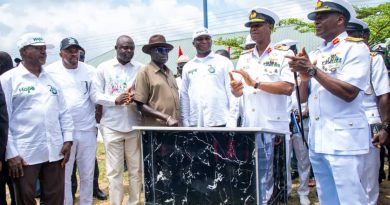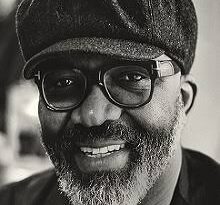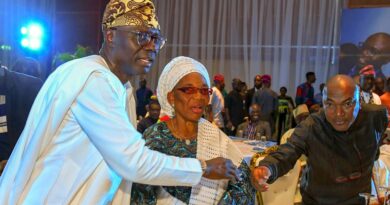No Citizens Should Be Pushed Into Poverty Seeking Essential Medical Care-Uba Sani
By Bukar BOLORI
Kaduna State Governor, Uba Sani has advocated for access to affordable medical care for all Nigerians, insisting that no citizens should be pushed into poverty for seeking essential medical care.
The Coordinating Minister of Health and Social Welfare, Dr. Ali Pate also called for national consensus on prioritizing healthcare system in the country.
Speaking at a High-Level Health Media Dialogue with Media Executives in Nigeria with theme: “Escalating Executive and Media Action for Health Accountability and Financing,” on Thursday in Abuja, Kaduna State governor said: “We believe no Nigerian family should be pushed into poverty by seeking essential medical care. Here, equity is not rhetoric for us. It is a principle of governance and justice…”
Sani, while noting that health facilities have been elevated in all parts of Kaduna state, said these landmark facilities significantly reduces the need for medical tourism, lessening the financial and emotional burdens in families.
He noted that emergency care is given priority, said: “We have launched the Kaduna State Emergency Medical Services ambulance system,” which has ensured that countless lives ensuring that urgent intervention reach patient within critical calling hour.
He added that: “Our consensus, as of today in Kaduna, the government has made it free for every emergency case in the first 24 or 48 hours without paying a penny, every patient will be treated free the first 48 hours in Kaduna.”
On his part, Pate said the issue of health affordability is universal and Nigerians need to know that the federal government is working on this.
He said: “There is real pain of affordability. Half of the world’s population doesn’t have access to basic healthcare services, not only in Nigeria, but we tend to self flagellate and not build a consensus to fix it, because it takes national consensus. It’s not a technical issue.
“Fixing health is not just a technical issue because we have had technical expertise for a very long time. It’s not also purely technocratic in terms of just having the right actors that know how to manage doing fundamentally, it’s a political choice that is reflective of political consensus within a country. It is when a country does not build a consensus on the prioritization of health or of education that it doesn’t allocate the resources or use the resources in that right way. And that goes beyond government.”
He noted that with the new tax reform has offered an opportunity for health to be adequately funded in the country.
Also speaking, the Country Director, Gates Foundation Nigeria Uche Amaonwu, said the health of our mothers, children and families, and by extension Nigeria’s human capital depends on what we do next for primary health care.
He assured that the Gates Foundation remains deeply committed to working alongside government and partners to ensure that every Nigerian family can rely on a strong, well financed primary healthcare system.
Earlier in her welcome speech, the Executive Director. International Society of Media in Public Health, Mrs. Moji Makanjuola reiterated the importance of budgeting adequately to health sector.
She said “while we acknowledge the remarkable progress made, we must also confront — with courage and compassion — the realities reflected in our health indices.”
She said according to the 2023 Nigeria Demographic and Health Survey (NDHS), Nigeria still records one of the highest maternal mortality ratios in the world at 512 deaths per 100,000 live births, and an under-five mortality rate of 102 deaths per 1,000 live births.
These figures translate to approximately 82,000 Nigerian women dying annually due to pregnancy-related causes, and one in every ten Nigerian children dying before the age of five.
“These statistics are not meant to indict but to inspire — to spotlight the urgency for deeper reforms, more coordinated investments, and sustained accountability. They also highlight why our collective focus on strengthening PHC systems remains both timely and essential.
“Primary Health Care Centres (PHCs) represent the bedrock of Universal Health Coverage (UHC) — the first and most critical point of contact for millions of Nigerians, especially those in rural and underserved communities. Yet, data from the National Primary Health Care Development Agency (NPHCDA) reveals that only 20% of the over 30,000 PHCs nationwide are fully functional.
“When PHCs work — maternal and child mortality declines, immunization coverage improves, productivity rises, and the cycle of poverty linked to ill health is broken. Our task, therefore, is not merely to acknowledge these challenges but to transform them into opportunities for lasting change.”




